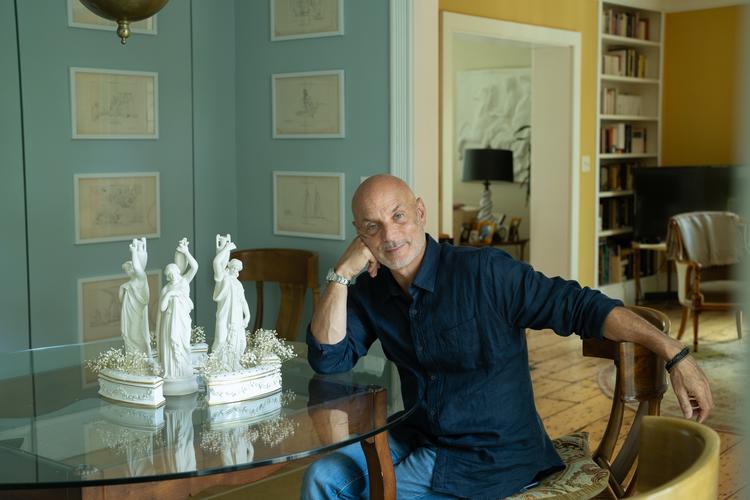
What’s the Ancient Greek for “Picnic”?: Adventures in Translating the Odyssey
September 17, 2024 · 4:30 pm—6:00 pm · 101 Friend Center and Livestream
Daniel Mendelsohn, Bard College

THE ROBERT FAGLES LECTURE FOR CLASSICS IN THE CONTEMPORARY ARTS
In this lecture, author, critic, classicist, and translator Daniel Mendelsohn (*89, *94), whose new translation of Homer’s Odyssey will be published next April, takes his audience into the heart of the process of translating. Beginning with the dauntingly enigmatic adjective that Homer uses to describe his hero in the first line of the poem—polytropos, “of many turns,” about which no two translators have ever agreed—Mendelsohn will present a series of case studies in translation culled from his own experience during the past six years working on his Odyssey. In so doing, he allows the audience to watch the translator at work as he grapples with the distinctive technical challenges posed by Homer’s verse: its meter and rhythms, diction and tone, the poet’s use of line-breaks, alliteration, and assonance, and the real meaning of famous phrases such as “gray-eyed Athena” and “wingèd words.” (Hint: they don’t have wings.)
Daniel Mendelsohn was born in New York in 1960 and educated at the University of Virginia, where he received his BA in Classics in 1982, and at Princeton, where he received his PhD in Classics in 1994. His 11 books include the international bestsellers An Odyssey: A Father, a Son, and an Epic (2017) and The Lost: A Search for Six of Six Million (2006); a translation, with commentary, of the Modern Greek poet Constantine Cavafy (2009); and three collections of essays and criticism, most recently Ecstasy and Terror: From the Greeks to Game of Thrones (2018).
Support for this project is provided in part by Princeton’s Departments of Classics and Comparative Literature, Humanities Council, Lewis Center for the Arts, Princeton University Public Lectures Committee, Program in Humanistic Studies, and the Seeger Center for Hellenic Studies















